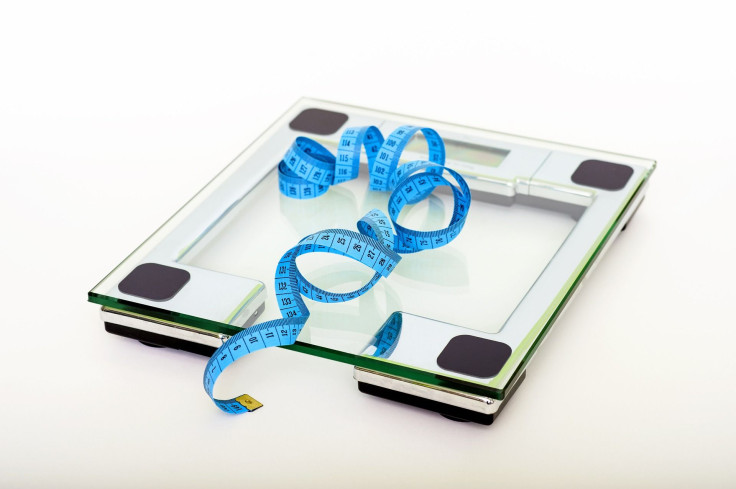Skipping Meals, Taking Diet Pills Linked With Minimal Weight Loss Compared To Diet, Exercise: Study
medicaldaily.com
May 03, 2023 12:31 AM By Suneeta Sunny
Planning to shed some pounds? A new study suggests that you might need to ditch shortcut methods like crash diets or diet pills and stick to more sustainable techniques like a healthier diet and exercise regime.
According to researchers from the Ohio State University, skipping meals and taking prescription diet pills fail to achieve significant weight loss when compared to those who are on healthier diets and exercise.
It was a first-of-its-kind study that evaluated the results of different weight loss strategies based on the American Heart Association's "Life's Essential 8" – a checklist to reduce heart disease risk. The checklist has information about body weight, blood pressure, cholesterol, blood sugar, smoking, physical activity, diet and sleep patterns.
The participants had an average score of 60 out of 100 on the eight measures, indicating that heart-healthy measures are poorly adapted in U.S. adults and there is a need for improvement.
"The Life's Essential 8 is a valuable tool that provides the core components for cardiovascular health, many of which are modifiable through behavior change," said Colleen Spees, a senior study author.
The participants who had "clinically significant" weight loss – around 5% of their body weight – also could not eliminate the risk factors for cardiovascular disease.
"In this study, adults with clinically significant weight loss reported higher diet quality, particularly with better scores on intakes of protein, refined grains, and added sugar, as well as more moderate and vigorous physical activity and lower LDL cholesterol than the group without clinically significant weight loss," the researchers wrote in a news release.
They said people still tend to adopt non-evidence-based approaches for weight loss, although they found participants who skipped meals and took prescription diet pills had minimal weight loss, weight maintenance, or weight gain.
"We saw that people are still gravitating to non-evidence-based approaches for weight loss, which are not sustainable. What is sustainable is changing behaviors and eating patterns," Spees said.
It is estimated that 85% of the adult U.S. population will be obese by 2030. Researchers believe the number of heart patients and people with other related health issues will also increase with it.
"We absolutely need to be moving toward prevention of disease versus waiting until people are diagnosed with a disease. This becomes quite overwhelming, and individuals may feel it's too late at that point," Spees said.
If obese patients could be given prescriptions for visiting dietitians trained in behavior change, which is completely covered by insurance, it might help them in their weight loss journey, the researcher noted.
 Skipping meals and taking prescription diet pills fails to achieve significant weight loss when compared to those who are on healthier diets and exercise, a study reveals.
Skipping meals and taking prescription diet pills fails to achieve significant weight loss when compared to those who are on healthier diets and exercise, a study reveals.
Vidmir Raic / Pixabay
Published by Medicaldaily.com
medicaldaily.com
May 03, 2023 12:31 AM By Suneeta Sunny
Planning to shed some pounds? A new study suggests that you might need to ditch shortcut methods like crash diets or diet pills and stick to more sustainable techniques like a healthier diet and exercise regime.
According to researchers from the Ohio State University, skipping meals and taking prescription diet pills fail to achieve significant weight loss when compared to those who are on healthier diets and exercise.
It was a first-of-its-kind study that evaluated the results of different weight loss strategies based on the American Heart Association's "Life's Essential 8" – a checklist to reduce heart disease risk. The checklist has information about body weight, blood pressure, cholesterol, blood sugar, smoking, physical activity, diet and sleep patterns.
The participants had an average score of 60 out of 100 on the eight measures, indicating that heart-healthy measures are poorly adapted in U.S. adults and there is a need for improvement.
"The Life's Essential 8 is a valuable tool that provides the core components for cardiovascular health, many of which are modifiable through behavior change," said Colleen Spees, a senior study author.
The participants who had "clinically significant" weight loss – around 5% of their body weight – also could not eliminate the risk factors for cardiovascular disease.
"In this study, adults with clinically significant weight loss reported higher diet quality, particularly with better scores on intakes of protein, refined grains, and added sugar, as well as more moderate and vigorous physical activity and lower LDL cholesterol than the group without clinically significant weight loss," the researchers wrote in a news release.
They said people still tend to adopt non-evidence-based approaches for weight loss, although they found participants who skipped meals and took prescription diet pills had minimal weight loss, weight maintenance, or weight gain.
"We saw that people are still gravitating to non-evidence-based approaches for weight loss, which are not sustainable. What is sustainable is changing behaviors and eating patterns," Spees said.
It is estimated that 85% of the adult U.S. population will be obese by 2030. Researchers believe the number of heart patients and people with other related health issues will also increase with it.
"We absolutely need to be moving toward prevention of disease versus waiting until people are diagnosed with a disease. This becomes quite overwhelming, and individuals may feel it's too late at that point," Spees said.
If obese patients could be given prescriptions for visiting dietitians trained in behavior change, which is completely covered by insurance, it might help them in their weight loss journey, the researcher noted.

Vidmir Raic / Pixabay
Published by Medicaldaily.com
